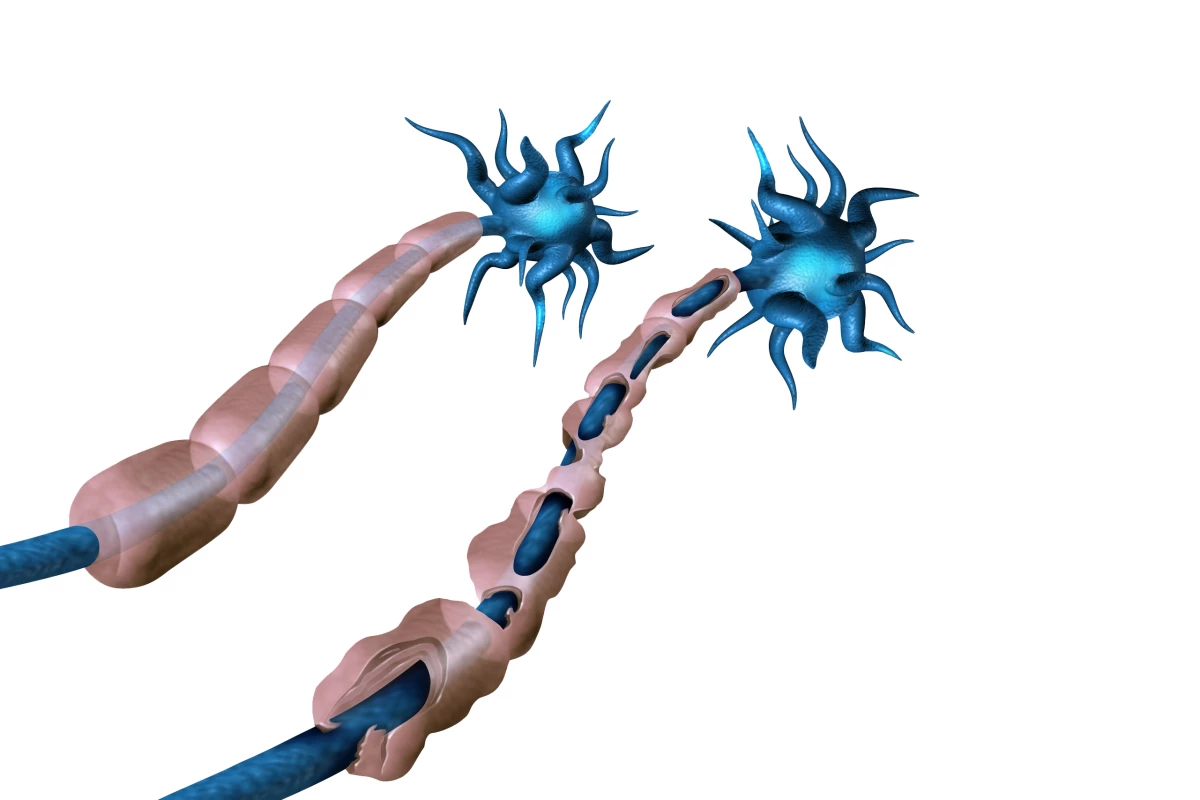Multiple sclerosis (MS) is a debilitating disease that affects the central nervous system. Now, a new study from the University of Rochester has shown that its effects may be prevented and even reversed in mice, by transplanting certain brain cells.
MS is an autoimmune disorder in which the immune system mistakenly attacks myelin, a material that covers nerves and neurons like insulation, as well as oligodendrocytes, the supporting brain cells that produce myelin. As this myelin disappears, signals become lost and disrupted, resulting in the sensory, motor and cognitive problems characteristic of the disease.
So for the new study, the researchers set out to find a way to replenish these oligodendrocytes. But to do that, the researchers had to go a few steps upstream. First, they manipulated the chemical signaling of stem cells to make them produce a type of brain cell called glia. Then they isolated a subtype of these, known as glial progenitor cells, which in turn produce new oligodendrocytes.
In tests, the team then transplanted these glial progenitor cells into MS-afflicted mice. As hoped, these cells were observed migrating to where in the brain they were needed, before creating new oligodendrocytes. Those in turn helped to replenish the missing myelin. Better yet, motor function appeared to be restored in these treated mice.
“These findings demonstrate that through the transplantation of human glial cells, we can effectively achieve remyelination in the adult brain,” says Steve Goldman, lead author of the study. “These findings have significant therapeutics implications and represent a proof-of-concept for future clinical trials for multiple sclerosis and potential other neurodegenerative diseases.”
Other studies have found similar success with a variety of methods. That includes introducing new stem cells or reinvigorating existing ones, injecting nanoparticles that switch off the immune response against myelin, and using other synthetic molecules that repair the damage.
The team says that the technique is currently under early FDA review for clinical trials.
The research was published in the journal Cell Reports.
Source: University of Rochester




